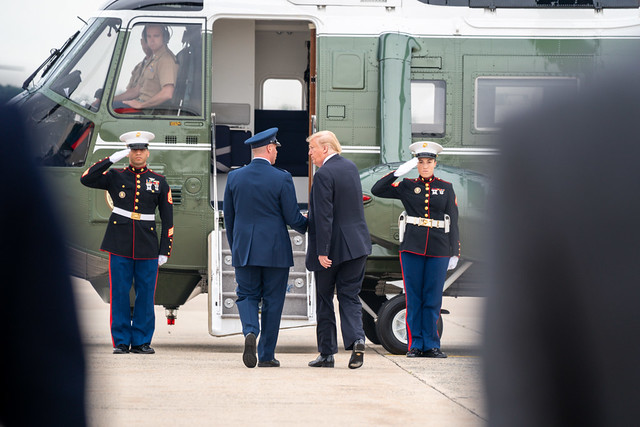The dramatic escalation of tensions between the US and Iran over the past few weeks has significantly changed the dynamic of Washington’s approach to Tehran, increasing the likelihood of military confrontation between the two countries.
Until recently, US President Donald Trump appeared content to use a combination of sanctions and rhetoric to pressure Tehran over the nuclear deal and Iran’s role in conflicts across the Middle East, a strategy that arguably also focused on regime change in Tehran.
But Washington’s posture changed in early May, when National Security Advisor John Bolton issued a statement saying that the US was deploying the USS Abraham Lincoln carrier strike group and a bomber taskforce to the Persian Gulf in response to ‘a number of troubling and escalatory indications and warnings’. The move was intended to send a message to Iran that ‘any attack on US interests or on those of its allies would be met with unrelenting force’.
Washington has been vague on what exactly these ‘indications and warnings’ were. Following Bolton’s statement, US military officials noted that ‘military analysts were not tracking any new, imminent or clearly defined Iranian or Iranian-backed threats against Americans in Iraq or the region’. Secretary of State Mike Pompeo confirmed that the deployment was ‘something [Washington has] been working on for a little while’, suggesting that it was more about the US moving decisively to the next phase of its Iran strategy than about responding to new threat intelligence.
In mid-May, Pompeo also briefed his European counterparts on Iran and outlined the ‘multiple plot vectors emerging from Iran’. But Pompeo’s European interlocutors appeared far from overwhelmed by Pompeo’s case on Iran. One unnamed European diplomat was quoted as saying that the meeting was ‘both useful and frustrating since we compared notes and information but failed to identify the rationale and the objectives of the maximal pressure’ being applied by Washington.
And yesterday the White House briefed US House and Senate members on the Iran situation but failed to convince them about the threat from Iran. Democrats said there was no new information that the threat from Iran had increased and accused the White House of being eager to attack Iran at the slightest provocation.
Nevertheless, the alleged sabotage of four oil tankers over the weekend of 11 May led to a further heightening of tensions in the Gulf, despite there being no clear attribution to Iran. Likewise, Iran’s deployment of rockets onto military speedboats on 16 May made the situation in the Gulf more volatile. The war of words between Washington and Tehran escalated into outright threats of military action.
Read the article by Connor Dilleen on The Strategist.

